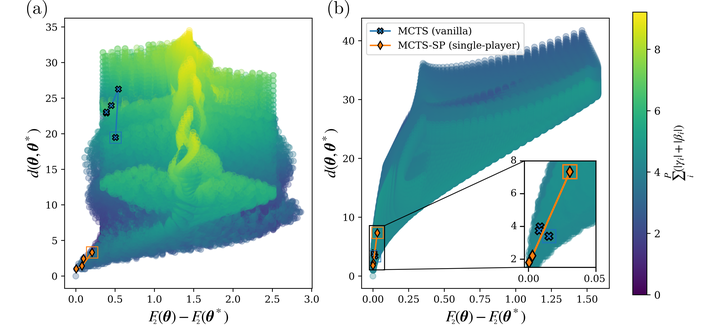
Abstract
The search for quantum algorithms to tackle classical combinatorial optimization problems has long been one of the most attractive yet challenging research topics in quantum computing. In this context, variational quantum algorithms (VQA) are a promising family of hybrid quantum-classical methods tailored to cope with the limited capability of near-term quantum hardware. However, their effectiveness is hampered by the complexity of the classical parameter optimization which is prone to getting stuck either in local minima or in flat regions of the cost-function landscape. The clever design of efficient optimization methods is therefore of fundamental importance for fully leveraging the potential of VQAs. In this work, we approach parameter optimization as a sequential decision-making problem and tackle it with an adaptation of Monte Carlo Tree Search (MCTS), a common artificial intelligence technique designed for efficiently exploring complex decision graphs. We show that leveraging regular parameter patterns deeply affects the decision-tree structure and allows for a flexible and noise-resilient optimization strategy suitable for near-term quantum devices. Our results shed further light on the interplay between artificial intelligence and quantum information and provide a valuable addition to the toolkit of variational quantum circuits.
